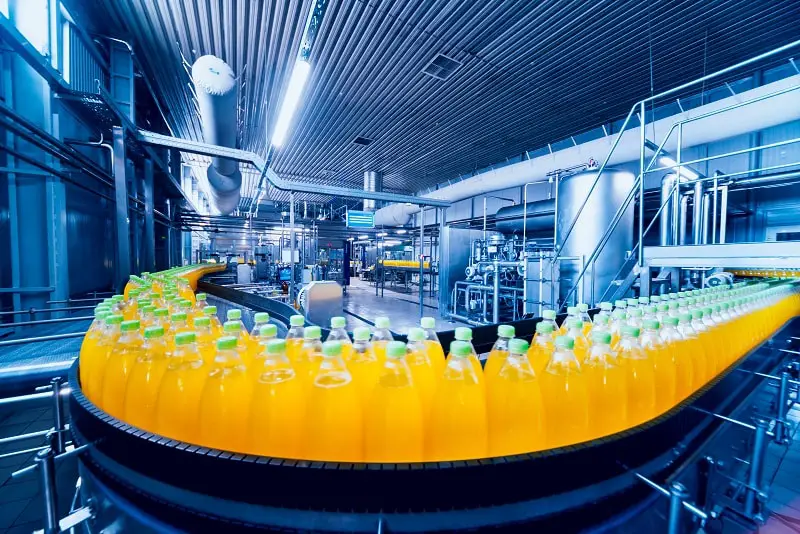Salary, Job Description, How To Become One, and Quiz
.jpg)
Beekeepers
Beekeepers or Apiarists are responsible for maintaining beehives to produce more bees. They use a variety of tools to inspect and maintain the hive and the health of the bees.
Table of contents
Beekeepers keep bees to collect their honey. They may also keep bees to aid the pollination of crops or to produce bees that they sell to other beekeepers. Beekeepers typically use boxes and other structures to store beehives and raise the bees.
Bees remain an essential part of the ecosystem, helping to pollinate plants and flowers. A single hive can pollinate an entire mid-sized garden. The hive produces a variety of substances that are used in various industries. Along with honey, hives produce bee pollen, royal jelly, propolis, flower pollen, and beeswax.
What they do
Beekeepers or Apiarists are responsible for maintaining beehives to produce more bees. They use a variety of tools to inspect and maintain the hive and the health of the bees.
Harvest Honey from Beehives
One of the most common responsibilities of a Beekeeper is to harvest honey and other substances from beehives. Harvesting occurs throughout the warmer months, depending on the amount of nectar that the bees collect and store in the hive.
A healthy colony of bees should yield about 50 pounds of honey each year. During the winter, the bees need nectar for food. After spring arrives, the excess honey is typically extracted by hand.
Some Beekeepers use an extra hive box called a “honey super”. The honey super contains a pre-formed honeycomb. After the bees fill the honeycomb, the Beekeeper simply removes the honey super.
Check the Beehive for Damage
After extracting honey and other substances, Beekeepers do not have many tasks to perform. However, they must periodically inspect the beehive for signs of damage. Beekeepers also need to protect the colony from disease, parasites, and pests.
Some of the most common threats to bees are other animals including mites, moths, skunks, lice, and mice. These pests may attack the honeycombs and frames. Mice may even build their own nests inside the bee frames.
Feed Sugar Water to the Bees
Bees do not require a lot of care but they do need a food source. Beekeepers typically mix sugar and water and place it near the colony. The sugar water is often used in the fall to ensure that the bees have enough food to last through the winter.
Construct or Purchase Hive Boxes
Beehives and honeycombs are often kept in frames or boxes constructed from wood. Beekeepers may construct these boxes themselves or purchase them.
Many boxes include separate trays. The lowest tray typically holds the queen and the upper boxes hold the honey. However, there are many different beehive designs, including horizontal beehives.
Prepare and Package Products
After extracting honey and other materials from a beehive, the Beekeeper may be responsible for preparing and packaging. For example, before selling honey to a food manufacturer, the Beekeeper may need to clean the honey by straining it to remove dirt, wax, and parts of bees.
After straining the honey, the Beekeeper may heat it to remove bacteria. The honey is then stored in airtight containers before being shipped to the food manufacturer.
What is the job like

My Name is Chris Vasquez owner and head beekeeper of our family agriculture business Heritage Bee Farm. Here on the Farm we breed genetically diverse and disease tolerant queen bees and supply them to beekeepers across the country. We have about 1,500 colonies in our commercial operation. In addition to our Queen Breeding program, we wholesale and retail a large variety of raw honey, infused honey, and create some very unique gift baskets from the hive and ship throughout the US.
My Typical Day
A day on a bee farm varies a lot by the season. For example, during certain times of the year when we are producing queens (Feb-Oct) we perform a task called Grafting, twice a week where we transfer bee larvae into a controlled environment to produce queen bees. We harvest honey 2-3 times per year in the Spring or Fall, and other days we spend making, fixing, or preparing bee equipment for use out in the field. Our list of responsibilities never gets completed, but we get the important things done.

Queen bee shipping preparation
Pros
Get to work autonomously with my family and enjoy nature, get to enjoy the fruit of ours and the bees labor. We have a sense of satisfaction knowing we are helping our fruit and vegetable farmers who require honeybee pollination for good crops and consumers who enjoy the vast supply they see in the produce section.
Cons
It takes a while to get established and build a reputation and brand, we work outside in the field at times in Sunny Florida where at times the heat can be brutal.
We are fully reliant on whether our business succeeds or fails. No steady paycheck coming. If we don’t produce, we are not going to pay the bills.
I worked in corporate America for 25 years as an upper level manager so I know what it’s like to work behind the desk and have the daily success and pressure of the office environment. I gave that up to build a business (now running 12 years) where my family can work together and help other farmers or hobbyists in beekeeping. We also get to enjoy nature and the fruits of our labor.

Grafting
Advice for aspiring Beekeepers
Few people in beekeeping started with the thought they were going to do this as a career with the exception of some generational beekeepers. The best way to begin beekeeping is like learning anything, begin studying it! There are so many books and online resources and videos that help paint the picture as to what’s involved. The next thing is to visit a local beekeeper or apiary, they can provide a wealth of information for newer beekeepers along with local beekeeping clubs. When I think back to when I started, If I had someone to bounce my questions off of, I would have shortened the learning curve exponentially and also saved a lot of money. The third thing is to buy a couple of beehives from your local beekeeper. If you’re going to do this for a living you have to begin getting practical experience which is oftentimes different from what you learn in watching and it means so much more when you are experiencing for yourself the conditions of your bees and learn how to respond.

Farm tour education
As you’re learning you will want to ascertain what kind of beekeeper you want to bee (pun intended). Beekeeping is a general term but there are niches in the business that different beekeepers tend to go down like Honey Production, Crop Pollination, Nucleus or Package Bee Sales or like Heritage Bee Farm, our expertise and focus is in, Queen Bee Production or Queen Cell production for other beekeepers. This is not to say you won’t have your hand in each of these to some extent, but focusing your beekeeping operation helps to channel your efforts in a direction that also aids in future decision making and in the financial decisions you will have.
Once you gain some experience with the bees you’ll then need to determine a path for growth. This can mean growing slow and steady as your bees grow you can take them and multiply them or, you will likely need to purchase additional bees to really give your business a boost. With beekeeping, you will find there are many ways to achieve the goal and every beekeeper usually thinks their way is best. My advice is to learn from all of them and then decide what works best for you in your specific situation.
Pros
Beekeeping Is an Interesting Career
When people ask what you do for a living, they are likely to be fascinated by your answer.
You Will Likely Have Lots of Free Honey
Beekeepers often maintain their own hives, collecting about 50 pounds of honey per colony. You are likely to have lots of surplus honey for your personal use.
You Get to Help Protect Bee Populations
Bees are important to ecosystems as they help pollinate plants. As a Beekeeper, you get to help ensure that bee populations continue to exist.
Working with Bees Can Be Relaxing
Tending to bees can be a relaxing experience. Many Beekeepers find that their job is soothing and calming.
Cons
You May Get Stung
You may occasionally get stung by a bee when extracting honey or inspecting the hive.
You May Not Find Employment
There is a limited need for Beekeepers, forcing many Beekeepers to work for themselves.
Where they work



Most of the work completed by a beekeeper occurs outdoors where they tend to the beehives. Beekeepers often work for companies that produce honey-containing products, such as food manufacturers.
Beekeepers may also work for farms and plant nurseries. For example, a plant nursery may employ a Beekeeper to ensure that plants and flowers are properly pollinated. Some Beekeepers are self-employed and sell the products produced by the hive to various companies.
How to become one
Step 1: Build or Buy a Bee Box
High school students who want to become Beekeepers may try building and maintaining their own bee boxes.
Step 2: Take a Beekeeping Course
Community colleges, community centers, and nature centers in your local area may offer Beekeeping courses. Take a course to develop the skills and knowledge needed for this career.
Step 3: Start Selling Honey
You can start selling your honey to local stores, food suppliers, nurseries, and other businesses that rely on fresh honey.
Step 4: Look for Apiary Jobs
After you gain experience with your own beehives, start looking for work as an entry-level Apiarist. Apiary jobs are often available at food manufacturers that manufacture honey-containing products.
Should you become one
Best personality type for this career
People with this personality type likes practical and hands-on work. They prefer working with plants, animals, and real-world materials like wood, tools, and machinery.
You can read more about these career personality types here.
Beekeepers are often introverts and should enjoy spending time alone. Beekeeping is often a solitary task with most working hours spent on your own. You should also have patience as tending to bees and extracting honey is a slow, careful process. You need to remove bee boxes while trying not to disturb the bees.
Beekeepers should also be able to deal with stress and remain calm in difficult situations. Becoming stressed when dealing with bees may increase your risk of getting stung.
Take this quiz to see if this is the right career for you.
Don’t know which career to pursue?
Take the career quiz to find careers that match your personality type.
Take The Career Quiz

.jpg)
.jpg)
.jpg)
.jpg)
.jpg)
.jpg)
.jpg)
.jpg)
.jpg)
